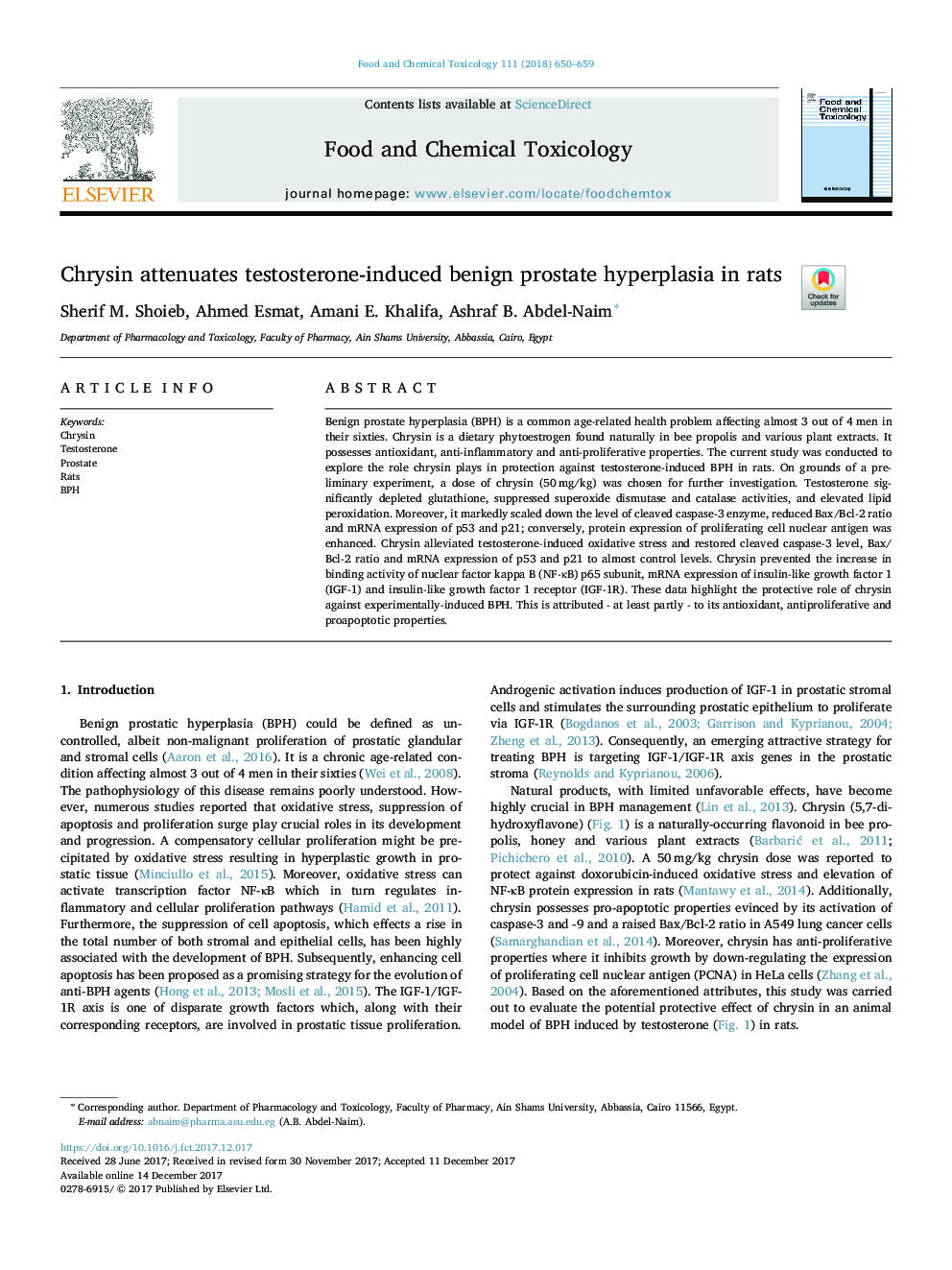| کد مقاله | کد نشریه | سال انتشار | مقاله انگلیسی | نسخه تمام متن |
|---|---|---|---|---|
| 8548687 | 1561736 | 2018 | 10 صفحه PDF | دانلود رایگان |
عنوان انگلیسی مقاله ISI
Chrysin attenuates testosterone-induced benign prostate hyperplasia in rats
ترجمه فارسی عنوان
کریزین باعث کاهش هیپرپلازی خوش خیم پروستات ناشی از تستوسترون در موش صحرایی می شود
دانلود مقاله + سفارش ترجمه
دانلود مقاله ISI انگلیسی
رایگان برای ایرانیان
کلمات کلیدی
موضوعات مرتبط
علوم زیستی و بیوفناوری
علوم کشاورزی و بیولوژیک
دانش تغذیه
چکیده انگلیسی
Benign prostate hyperplasia (BPH) is a common age-related health problem affecting almost 3 out of 4 men in their sixties. Chrysin is a dietary phytoestrogen found naturally in bee propolis and various plant extracts. It possesses antioxidant, anti-inflammatory and anti-proliferative properties. The current study was conducted to explore the role chrysin plays in protection against testosterone-induced BPH in rats. On grounds of a preliminary experiment, a dose of chrysin (50â¯mg/kg) was chosen for further investigation. Testosterone significantly depleted glutathione, suppressed superoxide dismutase and catalase activities, and elevated lipid peroxidation. Moreover, it markedly scaled down the level of cleaved caspase-3 enzyme, reduced Bax/Bcl-2 ratio and mRNA expression of p53 and p21; conversely, protein expression of proliferating cell nuclear antigen was enhanced. Chrysin alleviated testosterone-induced oxidative stress and restored cleaved caspase-3 level, Bax/Bcl-2 ratio and mRNA expression of p53 and p21 to almost control levels. Chrysin prevented the increase in binding activity of nuclear factor kappa B (NF-κB) p65 subunit, mRNA expression of insulin-like growth factor 1 (IGF-1) and insulin-like growth factor 1 receptor (IGF-1R). These data highlight the protective role of chrysin against experimentally-induced BPH. This is attributed - at least partly - to its antioxidant, antiproliferative and proapoptotic properties.
ناشر
Database: Elsevier - ScienceDirect (ساینس دایرکت)
Journal: Food and Chemical Toxicology - Volume 111, January 2018, Pages 650-659
Journal: Food and Chemical Toxicology - Volume 111, January 2018, Pages 650-659
نویسندگان
Sherif M. Shoieb, Ahmed Esmat, Amani E. Khalifa, Ashraf B. Abdel-Naim,
